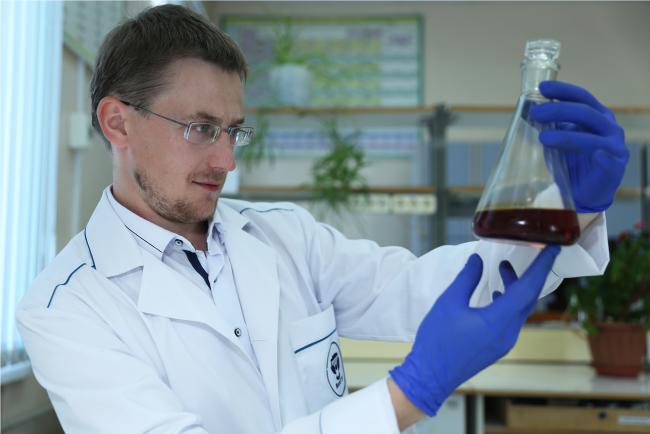Scientists of Vyatka State University (VyatSU) together with colleagues from the Institute of Chemical Physics named after N.N. Semenov Russian Academy of Sciences created a new formulation of biodegradable plastic from plant materials.
The development, according to experts, will allow films, bags, containers and many other types of plastic products to be replaced with more eco-friendly and environmentally friendly ones. The research results are published in the journal Polymers.
Specialists from Vyatka State University and the Russian Academy of Sciences have developed a recipe for biodegradable plastic. In addition to plant components, the material is based on polylactic acid (PLA) - according to scientists, one of the most promising biopolymers used in industry.
Research on biodegradable materials is carried out both in Russia and abroad. According to experts, market analogues of plastic already exist, but it is difficult to completely switch to them due to the high price and the lack of the necessary characteristics for the new type of packaging. It is these shortcomings that the authors of the study tried to eliminate by creating a new formulation, where all components should be based on renewable plant materials.
Currently, there are no materials based on pure, individual substances. Almost everywhere there are compositions - mixtures of two or three or more components, where each ingredient plays its own role, providing certain properties. For example, strength, color, low cost. Our polymer field is no exception, and blends are often used here. Not always all the necessary components "get along" in one recipe, in one composition. We solved this problem of combining dissimilar polymers by introducing a special additive, - commented Andrei Burkov, Associate Professor of the Department of Chemistry and Polymer Processing Technology at Vyatka State University.
To create a biodegradable material, the necessary components are isolated from plant biomass and mixed in special machines to form the final material, the scientists said. The result is a product entirely originates from plants. This greatly simplifies the disposal of the material. After use, such plastic will not lie in landfills for decades and hundreds of years. It breaks down into harmless substances and is easier to recycle than traditional plastic, which uses refined petroleum products.
It is important to understand that biodegradable plastic cannot be left out in nature to "decompose on its own." Naturally, this will take a long time. This product also needs special conditions for decomposition, such as compost pits. However, biodegradable material is much better and easier to recycle than classic plastic, because the production uses renewable, non-toxic and plant-based raw materials. This is one of the steps towards ending oil addiction, - emphasized Burkov.
The results obtained, according to the researchers, can be used in future developments. They can be improved and become essential in the industry, as well as optimize the production of packaging materials and technical products, where production volumes are large and the product cycle is short.
In Europe, plastic is already partially banned, and we are likely to come to this too. However, the problem needs to be solved comprehensively, for example, to develop reusable packaging. But sometimes it has to have certain properties, so a plastic with the right characteristics and an environmentally friendly formulation is a great solution. Of course, the volume of consumption of the usual plastic will decrease, but it is unlikely that it will be possible to completely get away from it, and what remains should be of plant origin and be easily processed, - Вurkov said.
The work of scientists from Vyatka State University has already aroused interest abroad. Collaborative research on biodegradable polymers is underway with colleagues from Malaysia.
Translated by Artemij Sizov
Read in Russian

